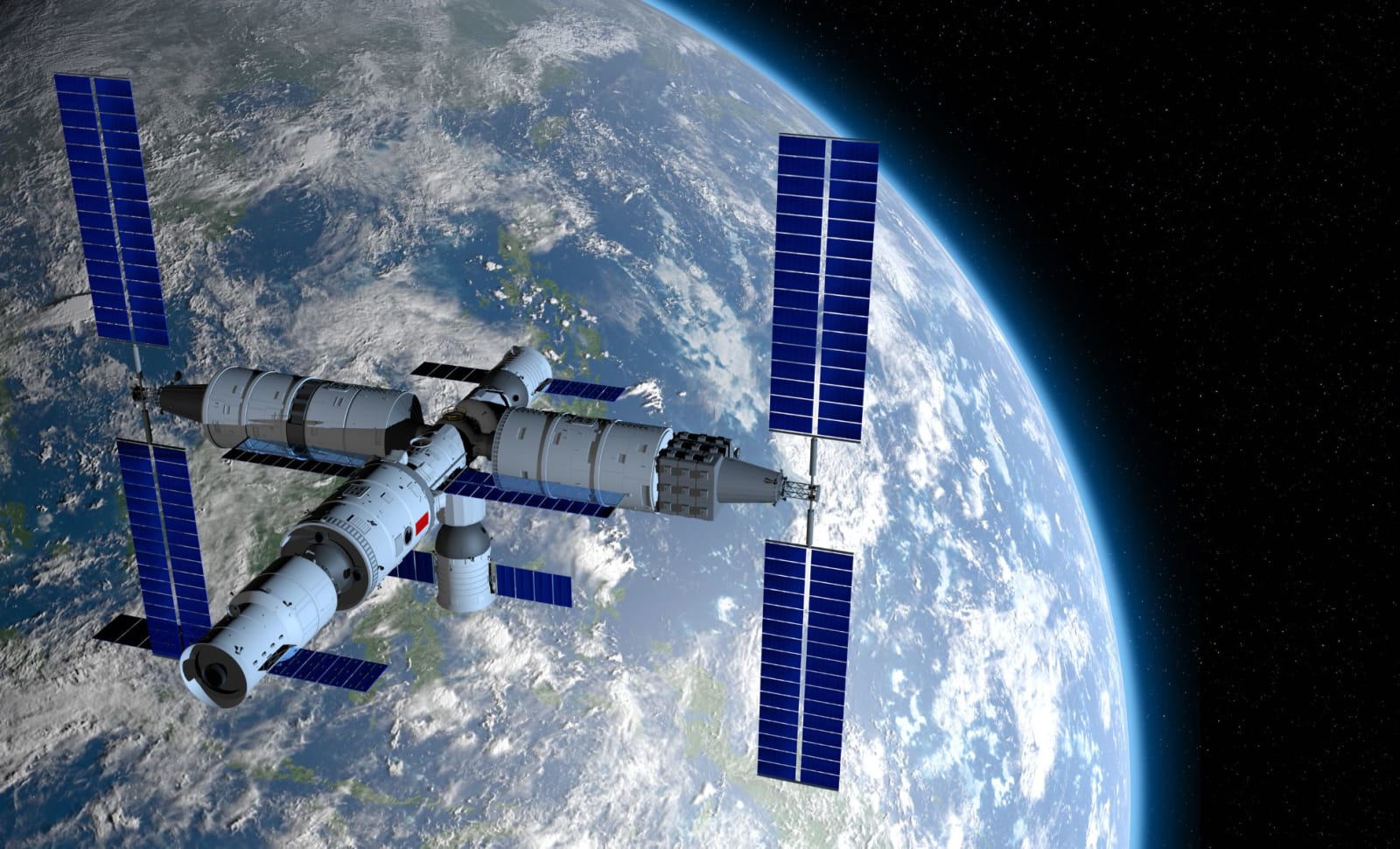
In an era where artificial intelligence is playing an increasingly crucial role across various sectors,Chinahas taken a bold step by deploying Wukong, its firstAI chatbot, aboard the Tiangong space station. As reported byXinhua News Agency, this AI system is the latest advancement in China's long-term space ambitions, combining modern technology with its strategic objectives for space exploration.
The Birth of Wukong: A Product of China's Space Strategy
Wukong, launched on theTiangong space stationIn July 2025, it is designed to assist astronauts by providing specialized, on-demand support. Developed from a domestic open-source AI model,Wukongis not merely an assistant but a game-changing tool for astronauts in space. "This system can provide rapid and effective information support for complex operations and fault handling by crew members, improving work efficiency, in-orbit psychological support, and coordination between space and ground teams," explained.Zou Pengfei, a key engineer involved in its development.
The deployment of the chatbot represents a significant milestone in China's expanding space program. For a nation increasingly focused on enhancing its technological footprint in space, Wukong is an essential asset. It is intended to meet the demands of manned space missions and support the long-term goals of the Tiangong station, which serves as a microgravity laboratory and a pivotal node in China's vision for a permanent presence in space. As space exploration becomes more complex, the use of AI-powered systems like Wukong is essential for addressing the challenges faced by astronauts during extended missions.
A Revolutionary AI Companion: How Wukong Supports Astronauts
Wukong's primary role aboard the Tiangong space station is to assist astronauts with various tasks, ranging from providing information to troubleshooting technical difficulties. The AI functions in two main modules: one located on Earth, responsible for in-depth analysis, and another on the space station that deals with immediate, mission-specific issues. This dual-module approach ensures that Wukong is not only capable of answering questions in real-time but also provides high-level support in the form of complex problem-solving when needed.
"The content it offers is highly comprehensive," said Wang, one of the taikonauts who tested the system. This level of thoroughness is crucial in the unpredictable and high-pressure environment of space. Whether taikonauts are performing spacewalks, conducting experiments, or dealing with equipment malfunctions, Wukong provides real-time guidance to ensure optimal mission success.
Wukong was first tested during a six-and-a-half-hour spacewalk, where taikonauts were tasked with installing space debris protection devices and inspecting the station. The AI was instrumental in ensuring the team could efficiently manage these critical tasks without compromising safety or accuracy. This was the first time China used a large language model in orbit, marking a historical achievement for their space program.
Wukong vs. Other Space AI Systems: What Makes It Different?
While AI systems like NASA's CIMON and Astrobee robots already assist astronauts on the International Space Station, Wukong brings a specialized focus on space navigation and operational support tailored specifically to the needs of the Tiangong mission. While CIMON provides psychological support and Astrobee assists with routine tasks, Wukong goes beyond these functionalities by focusing on aerospace flight data and space-specific challenges.
Unlike other AI systems that operate more like assistants for daily tasks, Wukong's intelligence is specifically curated to assist astronauts in complex operations that require in-depth knowledge of spacecraft systems and scientific data. Its ability to support the crew both in real-time and via ground-based analysis makes it a truly comprehensive solution for future space missions.
The Impact of Wukong on Future Space Exploration
Looking ahead, Wukong's deployment is likely to play a significant role in the evolution of AI in space exploration. As China expands its space station and pursues missions beyond low Earth orbit, such as lunar exploration, AI systems like Wukong will become indispensable. With China's ambitions to eventually establish a logistics platform between Earth and the Moon, Wukong could be pivotal in helping taikonauts navigate longer missions and more complex tasks.
Furthermore, the integration ofWukonginto theTiangongSpace station could signal the beginning of a new era where AI plays a central role not only in supporting astronauts but also in conducting autonomous operations. From scientific research to potential manned missions to Mars, the capabilities of AI will likely become more sophisticated, offering real-time decision-making and adaptive problem-solving abilities to support humans on their journey into deep space.
Enjoyed this article? Subscribe to our free newsletterfor engaging stories, exclusive content, and the latest news.
For more news like this, visitThe Shiro Copr.
0 comments:
Ikutan Komentar